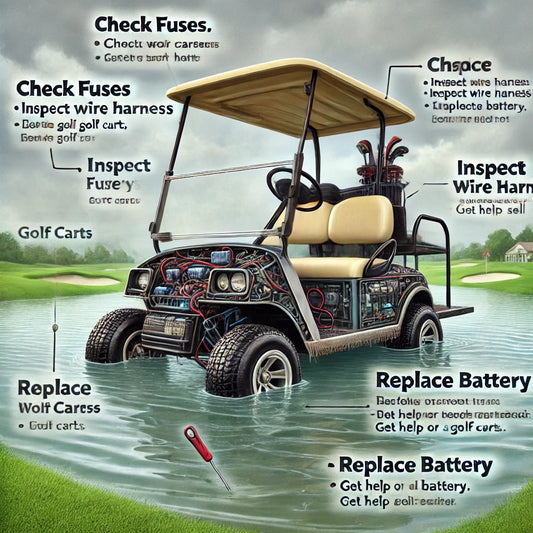The Lifespan of Golf Cart Batteries: Lead Acid vs. Lithium
When it comes to powering your golf cart, there are two main types of batteries to consider: lead acid and lithium. Both have their pros and cons, and understanding their lifespan is important in making an informed decision for your golf cart needs.
Lead Acid Batteries
- Typical lifespan: 2-6 years
- Range per charge: 20-40 miles
- Pros:
- Lower upfront cost
- Widely available and easy to find replacements
- Can handle extreme temperatures better than lithium
- Cons:
- Shorter lifespan compared to lithium
- Require maintenance, including periodic water additions and equalization charges
- Heavier than lithium batteries, which can impact overall performance
Lithium Batteries
- Typical lifespan: 5-8 years
- Range per charge: 60-80 miles
- Pros:
- Longer lifespan compared to lead acid
- Lighter weight, which can improve overall performance and handling
- No maintenance required
- Higher capacity and range per charge compared to lead acid
- Cons:
- Higher upfront cost compared to lead acid
- Less widely available and can be harder to find replacements
- Can be impacted by extreme temperatures
Ultimately, the decision to choose lead acid or lithium batteries for your golf cart will depend on your specific needs and budget. Keep in mind that regular maintenance and proper charging practices can help extend the lifespan of your batteries, regardless of the type.




